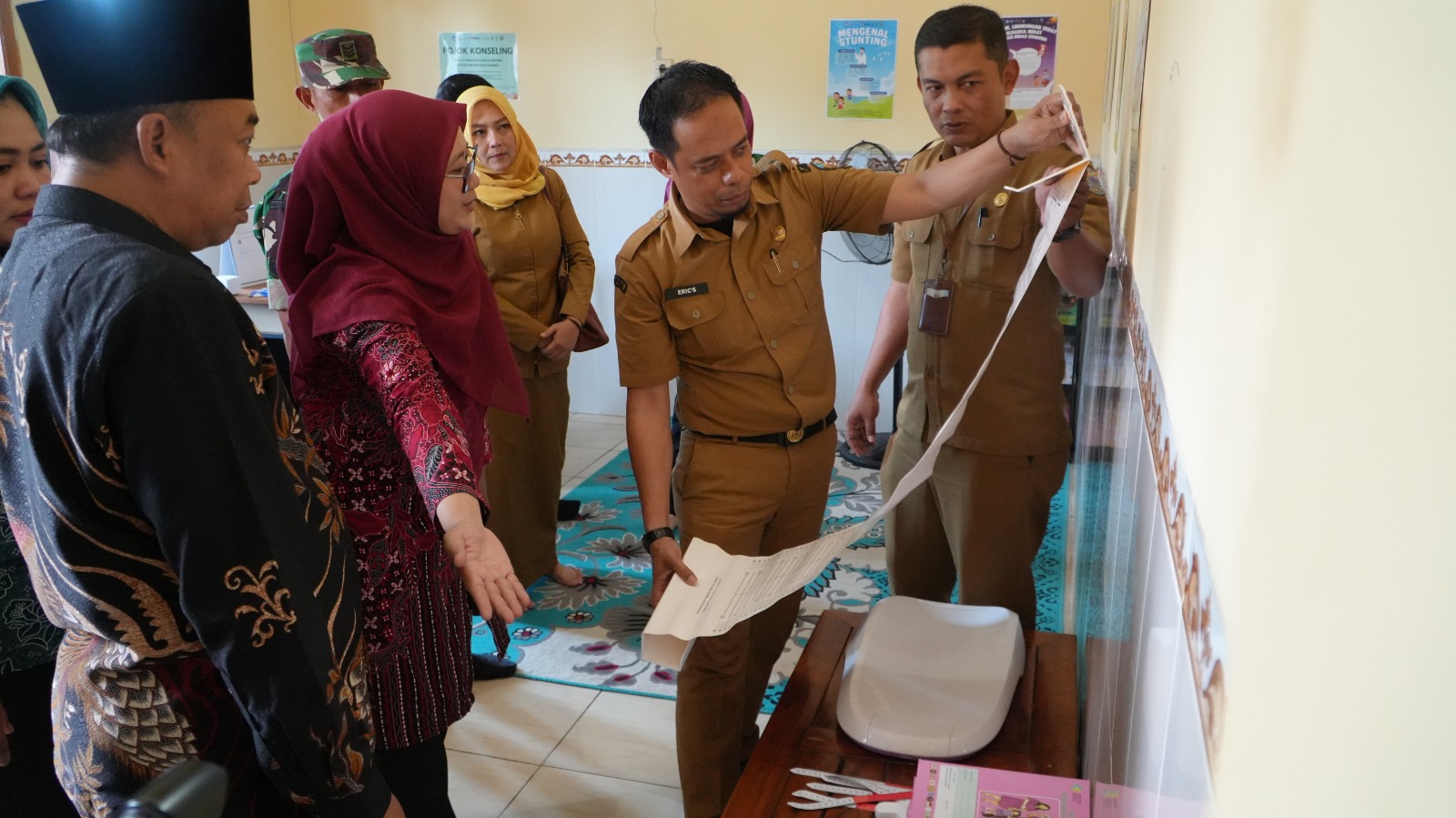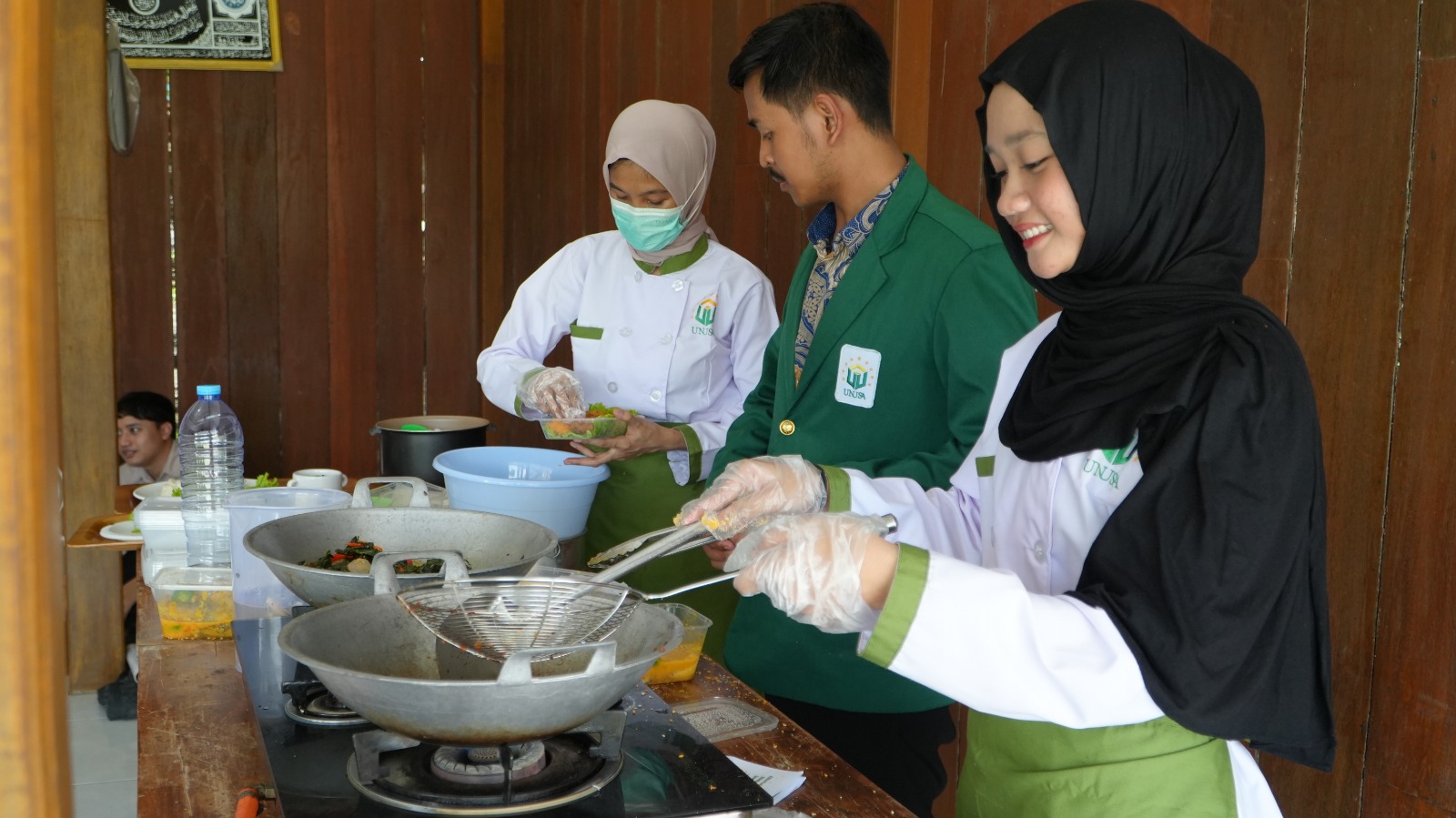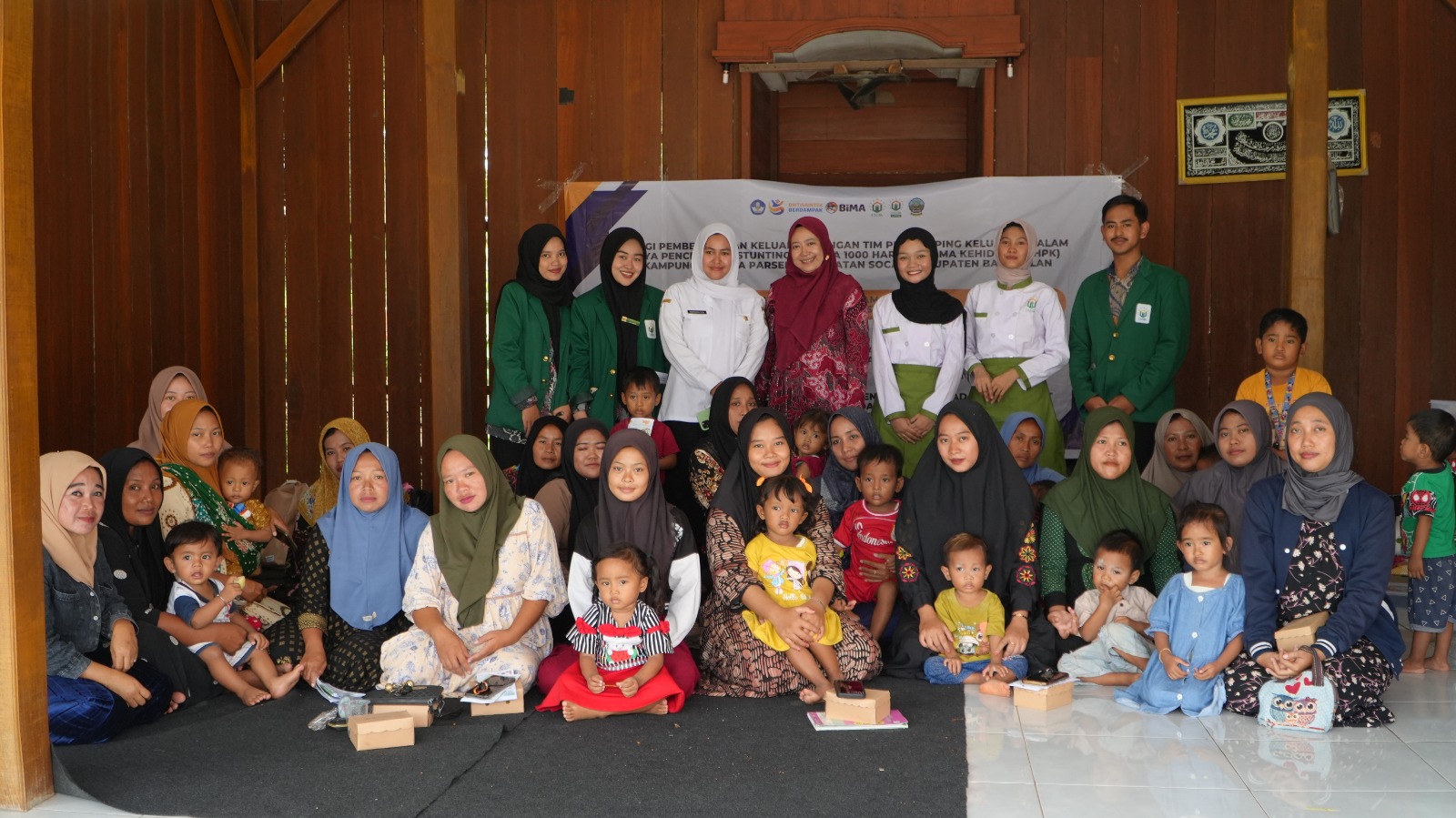BANGKALAN — Stunting remains a major public health challenge in Bangkalan Regency, particularly in Parseh Village, Socah District, located about 31 kilometers from Surabaya. Data shows that the lack of family knowledge and skills in monitoring child growth and development becomes one of the main causes of high stunting rates in the area.
Many families in Parseh Village still have limited understanding of nutrition, maternal and child health, and the importance of monitoring child development. This condition highlights the urgent need to strengthen family health literacy, especially during the critical First 1.000 Days of Life (HPK) period.
According to Eri Yadi Santoso, SE., MM, Secretary of the Office of Family Planning, Women Empowerment, and Child Protection (KBP3A) of Bangkalan Regency, the stunting rate reaches 38.9% in 2021, drops to 10% in 2023, but rises again to 17.7% in 2024. “We hope to lower the number below 14.7% in 2025,” he says.
In response to this issue, a team of lecturers from Universitas Nahdlatul Ulama Surabaya (Unusa) and Institut Ilmu Kesehatan Bhakti Wiyata Kediri, led by Dr. Ika Mardiyanti, S.ST., Bdn., M.Kes, together with Dr. dr. Wiwik Winarningsih, M.Kes, and Krisnita Dwi Jayanti, S.KM., M.Epid, conducts a community service program entitled “Family Empowerment Synergy with Family Assistance Teams in Preventing Stunting during the First 1,000 Days of Life in the Family Planning Village of Parseh, Socah District, Bangkalan Regency.”
This program is part of a community-based empowerment initiative funded by the Directorate of Research and Community Service, Directorate General of Research and Development, Ministry of Higher Education, Science, and Technology of the Republic of Indonesia in 2025. The funding support shows the government’s commitment to reducing stunting rates through collaboration among academics, health workers, and local communities.
The activity takes place in the Family Planning Village (Kampung KB) of Parseh and involves various participants, including members of the Family Assistance Team (TPK), prospective brides, pregnant women, and mothers with young children.
“To improve community knowledge and skills, the lecturers and students provide training on stunting prevention starting from pre-marital education, balanced nutrition, use of the Maternal and Child Health (KIA) handbook, Tuina massage techniques, and regular child growth monitoring,” says Mardiyanti.

She explains that through this training, Family Assistance Teams and families in Parseh Village gain practical skills to prevent stunting and monitor their children’s development effectively. The implementation of the Healthy Kitchen to Overcome Stunting (DASHAT) program also helps improve mothers’ ability to prepare nutritious meals for expectant mothers, pregnant women, and young children.
“A strong collaboration between universities, health professionals, the Office of Family Planning and Women Empowerment, village government, and the community is crucial to tackle stunting. Prevention must start from home, especially during the first 1,000 days of life. We hope that through this empowerment, families in Parseh can actively prevent stunting and ensure optimal child growth,” she adds.
Head of Parseh Village, Moh. Ilyas, S.AP, expresses his gratitude for the program. “We are very thankful that our village becomes part of this initiative. We hope that Family Assistance Teams and families can share the knowledge they gain with others so that the stunting rate in Parseh continues to decline,” he says.
He adds that the village government commits to sustaining the program by providing a Stunting Corner and facilities for future activities, such as premarital education, baby massage training, and child nutrition education.
This community service program serves as a real example of how cross-sector collaboration supports the achievement of the 17 Sustainable Development Goals (SDGs) particularly Goal 2 (Zero Hunger) by promoting healthy meal plans, Goal 3 (Good Health and Well-Being) by improving maternal and child health, and Goal 17 (Partnerships for the Goals) through cooperation with local government and IIK Bhakti Wiyata Kediri.

“Stunting prevention is a concrete step to realize the SDGs for a healthier and more equitable future. Through continuous education and family empowerment, this program aims to reduce stunting prevalence and improve the quality of life for children in Parseh Village,” says Dr. Ika.
She concludes, “Preventing stunting is a long-term investment for our children’s future. With consistent education, we hope the community becomes more aware and active in supporting child development. This program can make Parseh Village a model for stunting reduction and family resilience at the village level, contributing to a healthier and more prosperous Indonesia.”(Nrl/Genus)

 Bahasa Indonesia
Bahasa Indonesia

